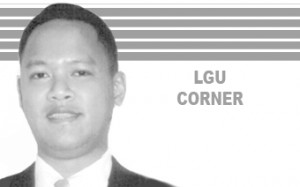 With a population of over 100 million today, about two out of three Filipinos, mostly the young generation, Â do not know about the hard and brutal lessons of martial law.
With a population of over 100 million today, about two out of three Filipinos, mostly the young generation, Â do not know about the hard and brutal lessons of martial law.
Commission on Human Rights Chairman Luis Martin ‘Chito’ Gascon, who was recently installed three months ago, has emphasized that the tortuous lessons of martial law enforced forty three years ago, should not be forgotten lest it be feared to be repeated in the future.
Chairman Gason recently spoke in a round table discussion on the State of Human Rights in the Philippines.
Gascon spoke on the issue of human rights as a nation with a current population of about 100 million observed the 43rd year since Martial Law was declared in the country.
Gascon noted that when martial law was enforced the Philippines only had a population of 40 million.
With a population of more than 100 million, it is estimated that two out of three Filipinos of the present generation never lived to feel the atmosphere of fear and brutality that martial law brought in the country.
If the difficult lessons of martial law are not instilled in today’s generation, the sacrifices of those who fought it will be forgotten, he said.
Worse, the fear is that martial law may be repeated if the people will not guard against its return.
He noted that democracy was restored in the Philippines when an Aquino replaced a Marcos.
In today’s atmosphere of freedom, it is not far-fetched that a Marcos might replace an Aquino, which could possibly allow a return of the mistakes in the past.
Gascon explained that the Commission on Human Rights is essentially a constitutional watchdog that will observe and expose and investigate incidents of violations of human rights, in order to call the proper agency to take appropriate action.
With the upcoming elections, he assured that the CHR will be watchful of the candidates’ position and inclinations on the issue of human rights.
He already took note of pronouncements of potential national candidates who have no high regard for the protection of human rights.
He lamented that the CHR’s hands are tied since it is merely investigatory in its task, without prosecutorial powers.
He also revealed the bureaucratic limitations of the commission, particularly the lack of personnel who need to attend to complaints of violations of human rights in the country.
He said he also hopes to shift the mindset of the commission from one that is too legalistic.
He noted that for a complaint to be taken cognizance of, there have to be legal papers like a sworn complaint.
Also present during the roundtable discussion were Human Rights commissioners Karen Dumpit and Gwen Pimentel-Gana.
The forum was also attended by peasants, and heads of farmers groups who reported human rights violations against the people even in a regime of democracy. (By Atty. Jay I. Dejaresco)
